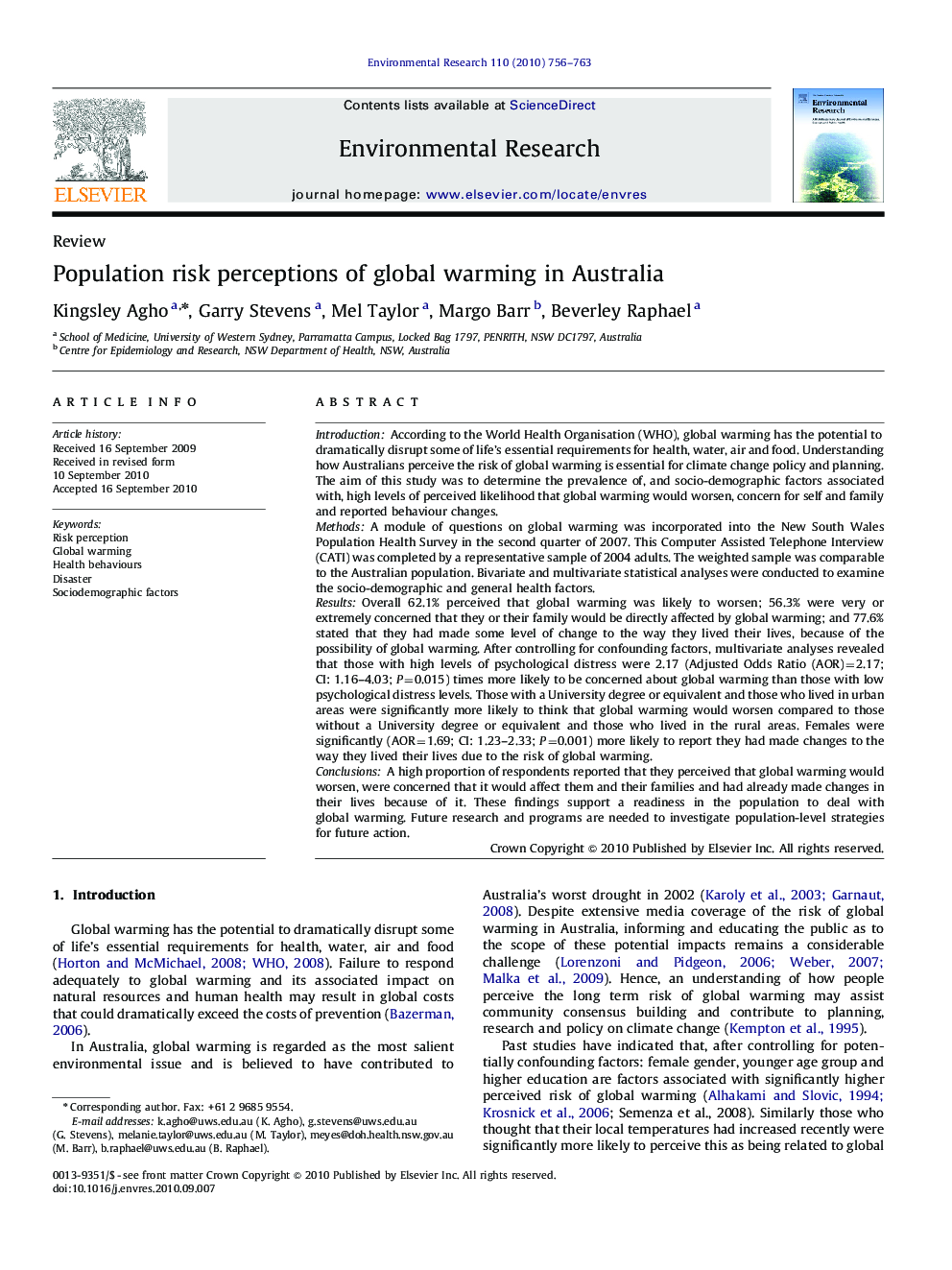| کد مقاله | کد نشریه | سال انتشار | مقاله انگلیسی | نسخه تمام متن |
|---|---|---|---|---|
| 4470073 | 1622590 | 2010 | 8 صفحه PDF | دانلود رایگان |

IntroductionAccording to the World Health Organisation (WHO), global warming has the potential to dramatically disrupt some of life’s essential requirements for health, water, air and food. Understanding how Australians perceive the risk of global warming is essential for climate change policy and planning. The aim of this study was to determine the prevalence of, and socio-demographic factors associated with, high levels of perceived likelihood that global warming would worsen, concern for self and family and reported behaviour changes.MethodsA module of questions on global warming was incorporated into the New South Wales Population Health Survey in the second quarter of 2007. This Computer Assisted Telephone Interview (CATI) was completed by a representative sample of 2004 adults. The weighted sample was comparable to the Australian population. Bivariate and multivariate statistical analyses were conducted to examine the socio-demographic and general health factors.ResultsOverall 62.1% perceived that global warming was likely to worsen; 56.3% were very or extremely concerned that they or their family would be directly affected by global warming; and 77.6% stated that they had made some level of change to the way they lived their lives, because of the possibility of global warming. After controlling for confounding factors, multivariate analyses revealed that those with high levels of psychological distress were 2.17 (Adjusted Odds Ratio (AOR)=2.17; CI: 1.16–4.03; P=0.015) times more likely to be concerned about global warming than those with low psychological distress levels. Those with a University degree or equivalent and those who lived in urban areas were significantly more likely to think that global warming would worsen compared to those without a University degree or equivalent and those who lived in the rural areas. Females were significantly (AOR=1.69; CI: 1.23–2.33; P=0.001) more likely to report they had made changes to the way they lived their lives due to the risk of global warming.ConclusionsA high proportion of respondents reported that they perceived that global warming would worsen, were concerned that it would affect them and their families and had already made changes in their lives because of it. These findings support a readiness in the population to deal with global warming. Future research and programs are needed to investigate population-level strategies for future action.
Journal: Environmental Research - Volume 110, Issue 8, November 2010, Pages 756–763